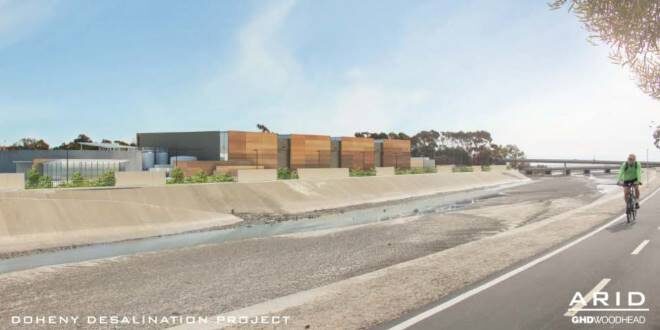The San Diego Regional Water Quality Control Board (SDRWQCB) voted 4-0 last Wednesday on two permit applications critical to the eventual permitting and construction of South Coast Water District’s (SCWD) Doheny Ocean Desalination Project.
“The Regional Board’s overwhelming support is the first of several regulatory approvals needed to make the Doheny Desalination Project a reality,” said SCWD Board President Rick Erkeneff. “We hope to secure the remaining permits needed for the project this fall.”
The applications before the SDRWQCB involved the National Pollution Discharge Elimination System (NPDES), which governs the manner in which facilities like the Doheny Desal Project must comply with the National Clean Water Act as required by the U.S. Environmental Protection Agency. The NPDES permitting system is the legal requirement enabling the Doheny Desal Project to produce a local, drought-proof, emergency supply of water to SCWD residents.
“We currently import 85 to 100 percent of our drinking water from northern California or the Colorado River, leaving us vulnerable to droughts, supply shortages, and potential natural disasters, such as an earthquake,” said SCWD General Manager Rick Shintaku.
Board President Erkeneff shared that SCWD must now obtain similar approvals from the California Coastal Commission and the California State Lands Commission.
“SCWD worked with South Orange County Wastewater Authority (SOCWA), who is the legally responsible entity and owner of the discharge point to the Ocean, as well as the ten SOCWA member agencies who represent Cities and Water Districts in south Orange County, the California Coastal Commission, the State Water Resources Control Board, the State Lands Commission, and the Department of Fish and Wildlife, to make sure that water quality standards in the ocean will be met for the protection of the environment,” said SOCWA General Manager Betty Burnett.
“The due diligence water quality studies and research that were conducted previously provided ample evidence to the Regional Board that the Doheny Desal Project will meet all State and Federal Clean Water Act Laws, as well as the requirements under the California Ocean Plan,” added SCWD General Manager Shintaku.
The Doheny Desalination Project has received bipartisan support from Federal and State legislators and other elected officials, in addition, to support from the environmental community and members of the public. The District Board is currently meeting with water agencies, water purveyors, and municipalities to discuss Doheny Ocean Desalination Project partnership opportunities.
The proposed Doheny Ocean Desalination Plant would provide up to five million gallons per day (5 MGD) of safe, drought-proof, and locally controlled water for south Orange County.
Unlike traditional desalination facilities, the Doheny Ocean Desalination Project location has unique hydrogeology that allows slant wells to draw water from beneath the ocean floor. This prevents marine life from being drawn into the desalination facility intake system.
SCWD plans to build the facility on existing District-owned property in Dana Point. Underground wells would be constructed underneath nearby Doheny State Beach. After the ocean water is desalinated, the salty discharge would be diluted with highly treated wastewater from SOCWA and released through the existing San Juan Creek Ocean Outfall two miles out to sea.
The cost of the 5 MGD Project is estimated at $130 million. SCWD has received $10 million in funding from the State of California, $20 million from the federal government, and recently received a $2.4 million earmark from United States Senator Alex Padilla. SCWD continues to seek further funding assistance for the Project.
For more information on the Project, please visit scwd.org/desal.
 California Water News Daily Your Source For Water News in California
California Water News Daily Your Source For Water News in California


